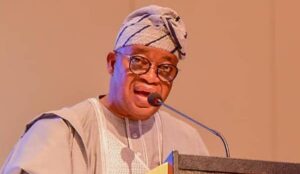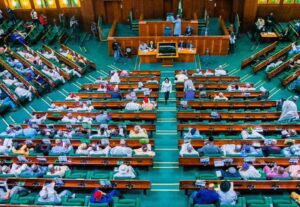Digital Economy: Why small businesses in Nigeria must be incorporated into formal sector — Experts
As the Central Bank of Nigeria (CBN) makes effort to create a path way for the wide acceptability of E-Naira in the country, particularly for business transactions, experts are of the view that acceptance of the E-currency among the mechanism for a digital economy would be to the benefit of small businesses to incorporate them into the formal sector.
On this, stakeholders have called for elaborate enlightenment for small business holders, given the importance of their contributions to employment quota and the GDP in the country.
Oral Chijioke from the Information Technology Department of the CBN, said the level of awareness on the E-Naira and Digital Economy among business owners is getting higher with the sensitisation programmes.
In his view, Chief Executive Officer of Jordan 105.5 FM Lagos, Lanre Johnson disclosed at a sensitization programme for Automobile Technicians and Fashion Designers on E-Naira and Digital Economy, organised in collaboration with the CBN in Lagos, noted that Small Businesses are the biggest contributor to the Nigerian economy, as they contribute 80 per cent of employment opportunities in the country.
“As an entrepreneurship station, we have done our research. Currently today in Nigeria, we have over 40 million small businesses, when you look at their contribution to the nation’s economy, it is very very low. And yet, they are the major contributor.
“For instance, they provide 80 per cent of jobs in the country, and their contribution to the employment sector is about 85 per cent. Now when you look at another aspect of our economy in terms of GDP, if our people, the merchant, that have not been captured into the mainstream economy if they can be incorporated into the economy, a whole lot will happen to our GDP.
“In the United States, small businesses contribute about 60 per cent to their GDP, in Germany, they contribute over 65 per cent to their GDP, in China over 49 per cent to their GDP, in India over 51 per cent to their GDP. For our people who are small merchants, we need to see how we can empower them, and we are talking about local content development,” he said.
On the impact of technology on Small Businesses, the Jordan FM boss said the E-naira will play a huge role in taking them from the informal sector to the formal sector.
“They can begin to do what other big businesses are doing, and as a radio station, we have already proposed a particular programme that we called DTABSS to CBN, how small businesses can optimize their business by adopting digital technology.
“So, we believe that the power of any economy today is in the strength of small businesses. If we can do this programme for them, and they can imbibe it, and with other solutions, we are coming up with regarding how they can adopt technology, and how they can build clusters across their businesses, we believe that they will contribute more to the economy. And we are using this opportunity to tell everyone, government, NGOs, and other institutions to come together to see what we can do for all these small businesses, let us see how we can give them the power, to see how we can provide them the required infrastructure; let’s see how we can put them right on entrepreneurship, so they can be a contributor to the economy,” he said.
In his view, Lagos State Chairman of the Nigerian Automobile Technician Association (NATA), Comrade Egberoungbe Moruf, expressed optimism about the E-Naira, stating it will help all artisans in their means of transactions and they are ready to embrace it.
On his part, the President of the Shoe Makers Associations in Lagos, Yisiru Bello, played up the importance of the E-Naira to artisans.
He said the technology will introduce artisans to the next level in business transactions, as it will open doors to the international market as well as the online market.




